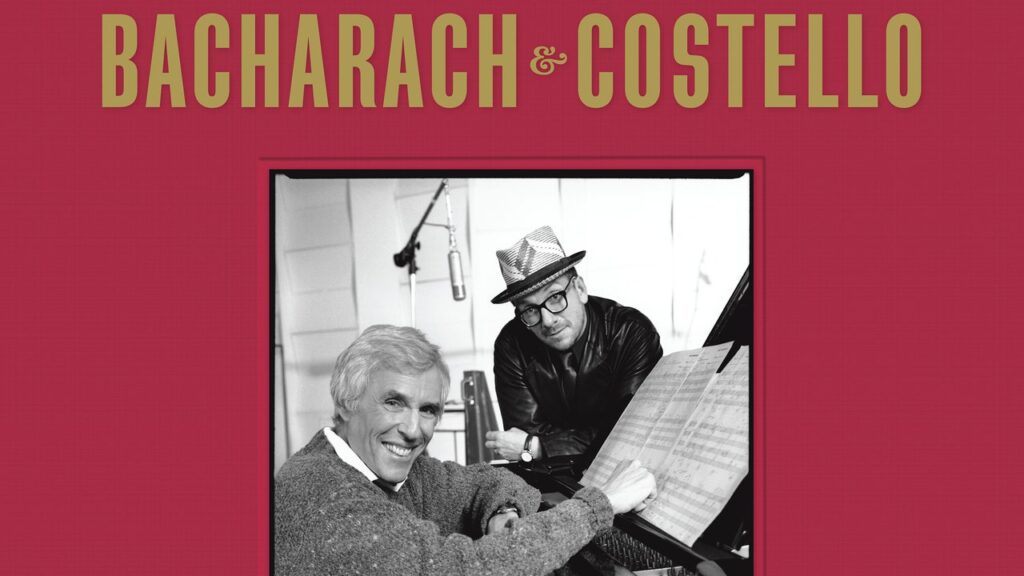
Burt Bacharach’s songs are deft studies in light and dark, order and chaos, major-key optimism and minor-key doubt. The lyrics to songs like “Walk on By,” “I Just Don’t Know What to Do with Myself,” “Trains and Boats and Planes,” and so many others convey messy, overwhelming emotions, while the music itself sounds exquisitely and exactingly crafted. Each element heightens the other to make the song more relatable and somehow even more pleasurable to anyone who has a heart. On “Tears at the Birthday Party,” which Bacharach co-wrote with Elvis Costello for their 1998 album Painted From Memory, the contrast between happy and sad is almost cartoonish: “I see you share your cake with him, unwrapping presents that I should have sent,” Costello sings, knowing he can’t watch but can’t look away either. What might have been maudlin becomes witty, even winking, thanks to Bacharach’s casually swinging arrangement, which is both sympathetic and sugary.
Bacharach and Costello were exceptionally well matched, each bringing something barely glimpsed in the other to the surface. Costello has collaborated intimately with the Brodsky Quartet, the Roots, Anne Sofie von Otter, and Allen Toussaint, but few challenged him quite as much as Bacharach. In return, he gives Bacharach some of his darkest sentiments to score, exceedingly bleak scenarios with titles like “In the Darkest Place” and “The Sweetest Punch.” They’re never quite as bitter as Costello’s notoriously sour love songs on 1979’s Armed Forces, but they still need Bacharach’s light touch. That contrast enlivens The Songs of Elvis Costello and Burt Bacharach, which puts Painted From Memory on vinyl along with subsequent collaborations, live cuts, and covers Costello recorded in the ’70s and ’80s.
They wrote their first song together via fax machine. In the mid 1990s, Costello sent Bacharach ideas for a song called “God Give Me Strength,” and Bacharach responded by sharpening a few lines and adding a new bridge, which turned out to be the missing piece. The finished composition first appeared on the 1996 soundtrack to Grace of My Heart, Allison Anders’ film based loosely on the career of Carole King. All the elements that would define their collaborative album were already present in the song: the strings and flugelhorns, the elegant expression of inelegant feelings. It opens as a conventional breakup song, with Costello lamenting the loss of a lover and begging God for the ability to “wipe her from my memory.” But the bridge reveals a darker facet to his predicament: “See, I’m only human,” he sings, attempting to exonerate himself for what comes next: “I want him to hurt.” It’s the first he’s mentioned another man, the third piece in this love triangle, and when Costello returns to the song’s prayerful refrain, it’s with a new recognition of the depths he has sunk and of the violent thoughts he now harbors in her absence.
